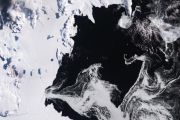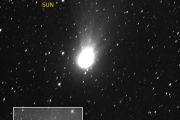
Copernical Team
Zooming into the Sun with Solar Orbiter
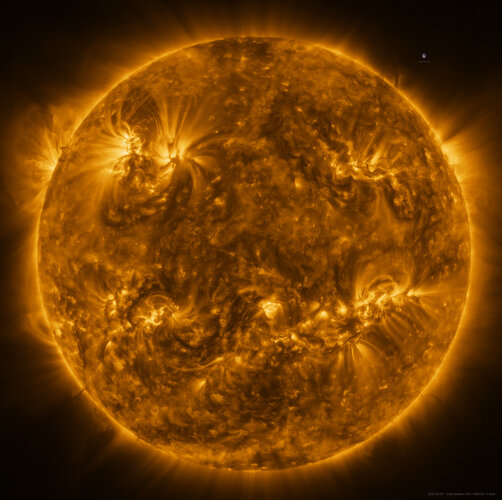
Solar Orbiter’s latest images shows the full Sun in unprecedented detail. They were taken on 7 March, when the spacecraft was crossing directly between the Earth and Sun.
Tracking sunspots up close
ESA astronaut Andreas Mogensen set to return to space
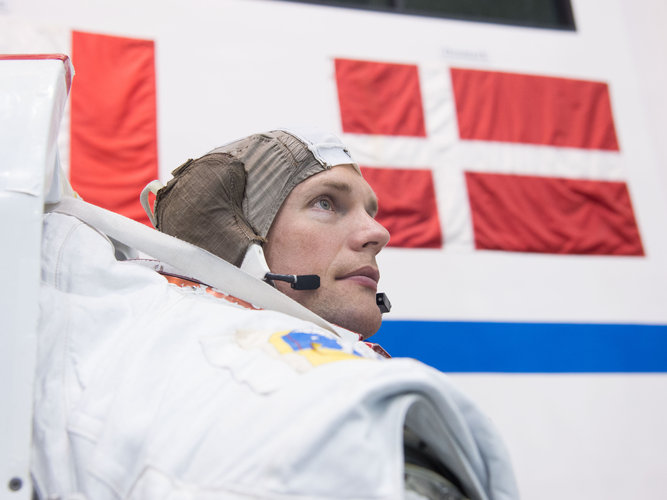
Danish ESA astronaut Andreas Mogensen has been assigned a long-duration mission to the International Space Station and is expected to fly as the pilot of a Crew Dragon spacecraft in mid 2023 or early 2024.
High Throughput Satellites Poised To Become Leading Commercial Growers In Space Infrastructure, With Wholesale Capacity Revenues Projected To Top $100B By 2030
PARIS, WASHINGTON, MONTREAL, YOKOHAMA, SYDNEY, TOULOUSE, 23 March, 2022 – Euroconsult has released the 6th edition of its High Throughput Satellites (HTS) report – its in-depth analysis of geostationary (GEO) and non-geostationary (NGSO) HTS markets including major drivers, strategic issues, competitive landscape and detailed forecasts of capacity supply and associated demand take-up.

ESA astronaut Andreas Mogensen and NASA astronaut Jasmin Moghbeli
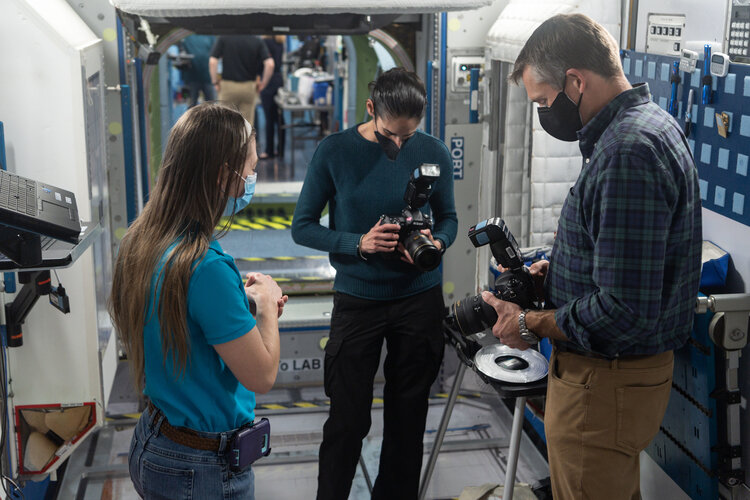 Image:
ESA astronaut Andreas Mogensen and NASA astronaut Jasmin Moghbeli train in camera skills
Image:
ESA astronaut Andreas Mogensen and NASA astronaut Jasmin Moghbeli train in camera skills Russian Military Takes Command of Meridian-M Comms Satellite
 The Meridian series of dual-use civilian/military communications satellites began to sent to space in the mid-2000s. In 2019, the first upgraded Meridian-M satellite was deployed.
The Russian military has taken control over the Meridian-M communications satellite after its launch from the Plesetsk Cosmodrome aboard a Soyuz rocket on Tuesday, the Ministry of Defence has announced.
"Th
The Meridian series of dual-use civilian/military communications satellites began to sent to space in the mid-2000s. In 2019, the first upgraded Meridian-M satellite was deployed.
The Russian military has taken control over the Meridian-M communications satellite after its launch from the Plesetsk Cosmodrome aboard a Soyuz rocket on Tuesday, the Ministry of Defence has announced.
"Th Hughes selected to deploy Private 5G Network for DoD
 Hughes Network Systems, LLC (HUGHES), an innovator in satellite and multi-transport technologies and networks for 50 years, has announced the award of an $18 million contract from the Department of Defense (DoD) to deploy a standalone 5G network at Naval Air Station Whidbey Island in Washington state.
The Other Transaction Agreement (OTA) was issued through the Information Warfare Research
Hughes Network Systems, LLC (HUGHES), an innovator in satellite and multi-transport technologies and networks for 50 years, has announced the award of an $18 million contract from the Department of Defense (DoD) to deploy a standalone 5G network at Naval Air Station Whidbey Island in Washington state.
The Other Transaction Agreement (OTA) was issued through the Information Warfare Research Trisept completes space simulation tests of TSEL satellite security system
 TriSept Corporation, a leading provider of launch integration and mission management services, has announced its new TriSept Security Enhanced Layer (TSEL) satellite security solution has successfully completed a series of rigorous vacuum chamber tests at Old Dominion University's Space Engineering Lab ahead of an upcoming suborbital test launch.
TriSept's software team and ODU aerospace e
TriSept Corporation, a leading provider of launch integration and mission management services, has announced its new TriSept Security Enhanced Layer (TSEL) satellite security solution has successfully completed a series of rigorous vacuum chamber tests at Old Dominion University's Space Engineering Lab ahead of an upcoming suborbital test launch.
TriSept's software team and ODU aerospace e Nearby star could help explain why our Sun didn't have sunspots for 70 years
 he number of sunspots on our Sun typically ebbs and flows in a predictable 11-year cycle, but one unusual 70-year period when sunspots were incredibly rare has mystified scientists for three hundred years. Now a nearby Sun-like star seems to have paused its own cycles and entered a similar period of rare starspots, according to a team of researchers at Penn State. Continuing to observe this star
he number of sunspots on our Sun typically ebbs and flows in a predictable 11-year cycle, but one unusual 70-year period when sunspots were incredibly rare has mystified scientists for three hundred years. Now a nearby Sun-like star seems to have paused its own cycles and entered a similar period of rare starspots, according to a team of researchers at Penn State. Continuing to observe this star IXPE checks out x-rays from extreme objects
 NASA's Imaging X-ray Polarimetry Explorer (IXPE) mission, a joint effort with the Italian Space Agency, has returned data that no other spacecraft has obtained before from a few extreme cosmic objects.
Launched in December 2021, IXPE has detected polarized X-rays from three of its first six targets. Polarized X-rays carry unique details about where the light comes from and what it passes t
NASA's Imaging X-ray Polarimetry Explorer (IXPE) mission, a joint effort with the Italian Space Agency, has returned data that no other spacecraft has obtained before from a few extreme cosmic objects.
Launched in December 2021, IXPE has detected polarized X-rays from three of its first six targets. Polarized X-rays carry unique details about where the light comes from and what it passes t 
















